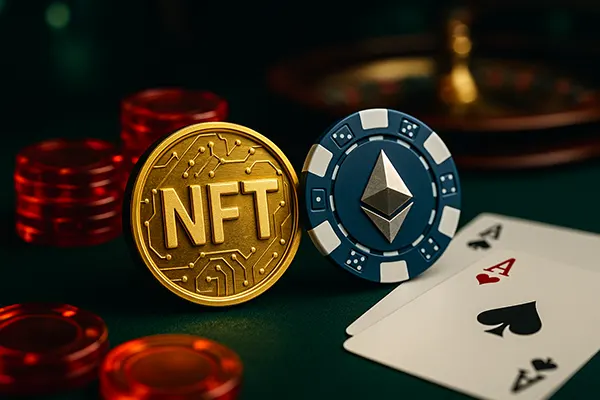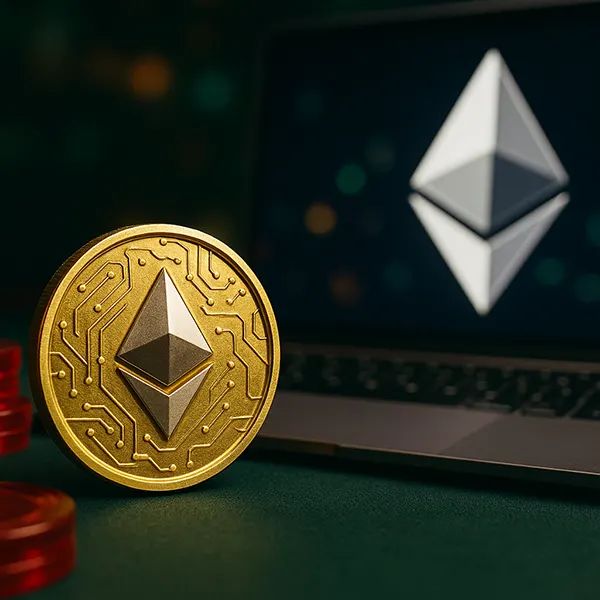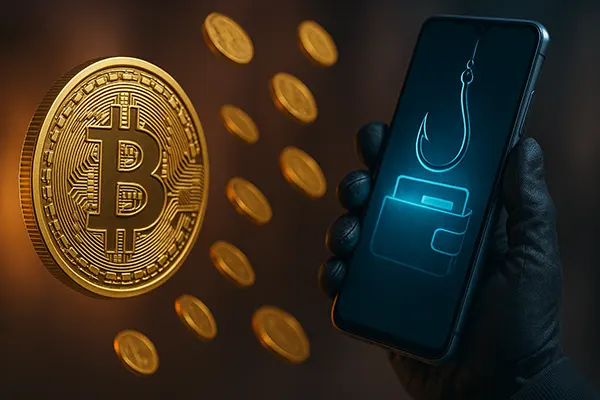
NFT Gambling: How Non-Fungible Tokens Are Reshaping Crypto Casinos in 2025
In 2025, the intersection of NFTs and online gambling has moved far beyond early speculation. With blockchain integration becoming a foundational element of crypto casinos, non-fungible tokens (NFTs) are no longer just collectibles — they are integral to how games function, how users engage, and how casinos attract and retain players. This evolution is not a trend but a major transformation of the decentralised gambling economy.
Tokenised Gambling Experiences: The Rise of Utility NFTs
Crypto casinos now leverage NFTs not just as aesthetic assets but as functional elements of gameplay. Utility NFTs act as keys to private tables, exclusive games, or VIP tournaments. A player’s wallet holding a specific NFT can grant early access to jackpot events, elevated rakeback rates, or customisable avatars within metaverse-based gambling hubs.
These NFTs are often tiered, with rarity impacting the benefits they unlock. For instance, rare NFT cards tied to poker or roulette tables might increase the payout odds slightly or offer access to profit-sharing pools funded by house edge profits. These perks are all verified via smart contracts, reducing trust issues and fraud.
With on-chain proof of ownership, casinos can personalise user experiences at scale. Unlike traditional VIP systems, NFT-based rewards are decentralised, portable between platforms, and tradable on third-party marketplaces — giving players control and liquidity.
Gamification and Long-Term Player Value
By integrating NFTs, crypto casinos turn single-session gamblers into long-term stakeholders. Players who once chased one-time bonuses are now incentivised to collect, upgrade, and stake NFTs for yield-like mechanics. This has led to the birth of NFT staking pools — players can lock their NFTs to earn dividends based on house revenue or game activity.
Game developers have also introduced achievements tied to NFTs. Winning 10 blackjack sessions in a row might mint a limited NFT badge that boosts future bonuses. These NFTs build reputation and influence on-chain identities, fuelling community-driven recognition in Discords and Web3 forums.
Even losing can yield value. Some casinos mint “burn NFTs” for frequent players who’ve endured unlucky streaks, allowing them to exchange these for free spins or cashback — a kind of on-chain loyalty system reinforcing user retention without traditional CRM tools.
Ownership, Provenance, and Transparency in Game Assets
One of the strongest arguments for NFTs in gambling is transparency and verifiability. Unlike traditional in-game assets stored on centralised servers, NFTs live permanently on-chain. This transparency builds trust with users, as they can verify rarity, circulation, and ownership history of each asset — vital for high-stakes environments where fairness is paramount.
Slot games built on NFT collections allow players to use their NFTs as in-game symbols or wilds. Some projects tokenise entire slot machines or roulette wheels, letting users invest in and own fractional shares in game outcomes, with revenue distributions directly paid into crypto wallets.
Moreover, using NFTs as game logic layers has allowed provably fair game development to expand beyond randomness. Developers can tie game volatility or features to NFT metadata — for example, a high-volatility slot may only activate if a player’s NFT matches specific blockchain criteria or traits.
Security and Identity Integration
Beyond gameplay, NFTs are revolutionising account verification and user protection. Wallet-bound NFTs are now being used as decentralised identity credentials (DIDs) — replacing the need for cumbersome KYC documents while still meeting regulatory frameworks in certain jurisdictions like Malta or Estonia.
Smart contract architecture allows casinos to ensure one-account-per-user without harvesting personal data. An NFT-based login guarantees uniqueness, mitigates multi-account abuse, and facilitates instant login across multiple gaming sites without usernames or passwords.
Security is also elevated. Players use hardware wallets or biometric-signature apps to control access to their NFT credentials, reducing phishing and account hijacking threats. Combined with zero-knowledge proof protocols, NFT gambling has the potential to balance privacy and compliance elegantly.

The Economics Behind NFT Gambling Markets
2025 has seen the emergence of full-fledged secondary markets for NFT gambling assets. These marketplaces allow players to buy and sell rare bonus tickets, limited edition roulette chips, and battle-ready poker cards. For many, the profit doesn’t lie in gameplay but in speculation and arbitrage of NFT value across platforms.
Casinos are even launching IPO-style NFT sales before major tournaments or jackpot games. These NFTs offer partial ownership in the event’s prize pool, letting players become stakeholders and not just spectators. The model merges iGaming and decentralised finance (DeFi), generating entirely new forms of investment and yield strategies.
Cross-casino NFT interoperability has also begun, led by initiatives such as CasinoVerse Alliance — a Web3 consortium of casinos agreeing on shared asset standards. This allows NFTs to retain utility even when switching platforms, boosting long-term value and user freedom.
Regulatory Challenges and Ethical Frontiers
Despite innovation, NFT gambling faces growing scrutiny. Regulatory bodies in the EU and Asia-Pacific are debating how NFTs fit within gambling legislation, especially as some tokens acquire high real-world value and speculative demand. Concerns about money laundering, market manipulation, and underage access persist.
Projects now undergo smart contract audits and NFT whitelist screenings to prevent fraudulent activity. Also, some casinos have implemented age-locked NFT issuance — users must prove wallet age or pass non-invasive KYC to mint NFTs for gambling. Ethical design has become a focus for sustainability and reputation.
Education is key: responsible gambling practices now include NFT literacy. Casinos publish transparent breakdowns of token utility, risk, and volatility. Players are urged to treat NFTs not as magic yield tools, but as programmable assets requiring informed use, similar to any financial product.


